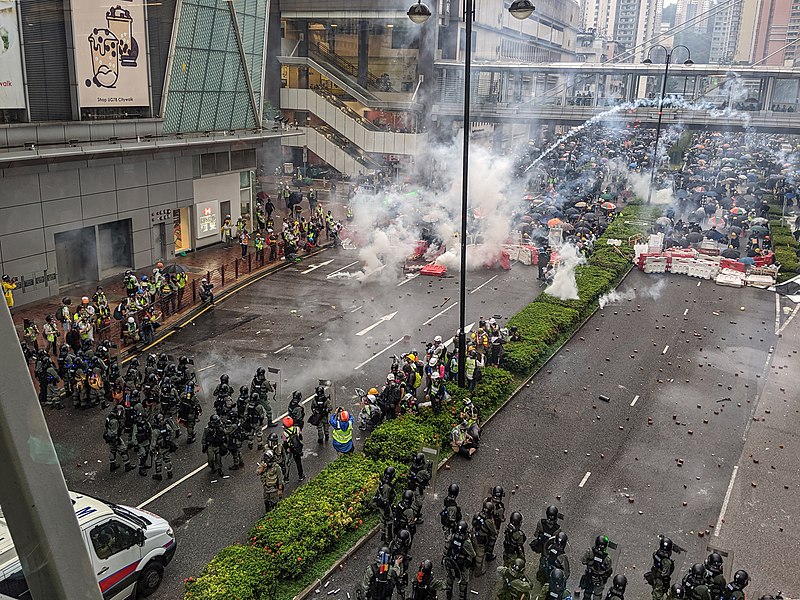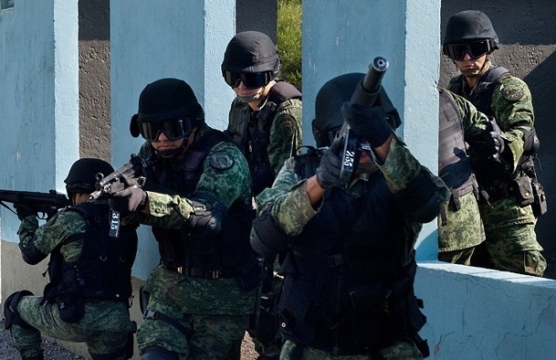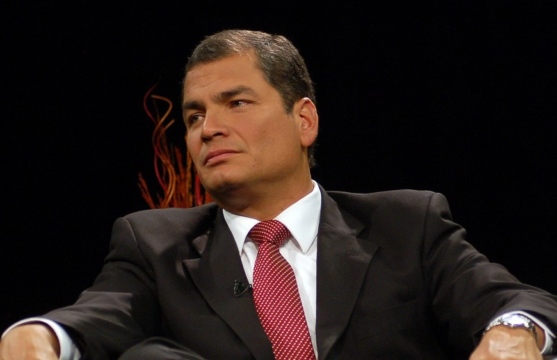IACHR Report on Citizen Security & Human Rights
Citizen security remains a top concern for most Latin American governments as crime and violence spiral out of control and cripple political and economic institutions in the region.
A Daily Publication of The Dialogue
The United States on July 15 announced it had sanctioned Chinese technology firm Huawei for alleged complicity in human rights abuses, saying “companies like Huawei … provide material support to regimes engaging in human rights violations and abuses globally.” The announcement comes as China cracks down on protesters in Hong Kong, who for the past year have held massive demonstrations calling for democracy. To what extent have such developments altered Latin American and Caribbean countries’ attitudes toward China, a country that over the past decade has provided billions of dollars in lending and other support for the region? Are Latin Americans perceiving China less or more favorably than before, and how do they view China’s human rights record in Hong Kong and elsewhere? To what extent is increasing U.S.-China competition, including in the technology sector, changing Latin American governments’ relationships with the Asian giant?
Guo Jie, associate professor at Peking University’s School of International Studies: “The Trump administration’s latest escalation in its campaign against Huawei, citing allegations of it providing ‘material support to regimes engaging in human rights abuses globally,’ does not come as a surprise, given a long list of charges it has previously announced against the company. It is widely regarded in China as another move intended to politicize competition in high-tech innovation and interference in China’s internal affairs. The United States and China are Latin America’s top commercial partners. The ongoing tensions between the two countries have inevitably created spillovers into the region. I remember that about six or seven years ago, the United States publicly said China’s presence in Latin America had played a positive role in promoting regional economic well-being. Today, this view basically no longer exists. Latin American countries are now under increasing pressure from Washington to resist China’s growing influence. It remains unclear whether China would consider or has considered repositioning Latin America in its international strategy. Nevertheless, for the time being, with the exception of some cases such as Brazil, most countries in the region still give priority to their own practical interests rather than simply taking sides for ideological reasons. Considering the acute Covid-19 crisis and the looming economic and social ‘pandemic’ afterwards, Latin America’s choice is more likely to be to take a balanced route to seek advantages and avoid losses caused by unnecessary involvement in the competition between the world’s two largest economies.”
Ricardo Barrios, senior analyst at RWR Advisory: “The United States’ measures against Chinese companies, including Huawei, have not visibly changed Latin American governments’ receptiveness toward Chinese companies, nor Latin Americans’ disposition toward the People’s Republic. This is, at least partially, due to the fact that the country remains a distant unknown to the majority of Latin America and the Caribbean (LAC). The information gap is particularly wide when it comes to China’s human rights abuses in Hong Kong and Xinjiang—and the complicity of certain Chinese firms in them—which are regularly covered by the press in the United States, but do not feature as visibly in LAC. In the absence of that context, many in the region attribute the United States’ claims against Chinese firms in their entirety to an unfolding great power rivalry in which they are reluctant to participate. Though the United States has sought to galvanize the region into drawing down their engagement with China (especially in critical areas such as telecommunications infrastructure), the effort has not had Washington’s intended effect. Faced with increasingly urgent demands that they turn China away, Latin American countries are refusing to take a side in the contest. Regardless of how they really feel, no country, not even Bolsonaro’s Brazil, wants to publicly commit to excluding Chinese firms, as this would jeopardize their economic relationship with the world’s second-largest economy. This is doubly so if they are not convinced that Chinese firms pose a greater security risk than any other foreign firm.”
R. Evan Ellis, Latin America research professor at the U.S. Army War College’s Strategic Studies Institute: “In my interactions with military, business and other people in the region since China’s engagement began to take off there in the early 2000s, I observe that distrust toward the People’s Republic of China coexists with hopes of benefiting from access to the Chinese market or playing a role in local investment and other activities by Chinese companies. Mistrust varies by person, but often includes concerns over Chinese business practices, the authoritarian character of its government and China’s human rights practices. The Chinese government and its companies have a record of vindictiveness for those who criticize (such as the embargo against Australian beef for calling for an investigation of China’s role in Covid-19 or threatening to cancel British infrastructure projects when it considered excluding Huawei from 5G). Thus, Latin American officials and businessmen, and academics not wanting to jeopardize their next PRC-sponsored invitation to China, mute expression of such concerns. While most Latin Americans see Huawei simply as a provider of competitively priced phones, its products and architectures present two grave risks. Under China’s 2017 National Security Law, the PRC government can demand providers such as Huawei turn over data on Latin American users, including sensitive commercial and government data, as well as compromising, exploitable information on individual users. Additionally, China’s export of surveillance and control systems (for example, ECU-911, BOL-110, Uruguay’s border surveillance system, cameras in the Colón free trade zone and various ‘Smart Cities’ initiatives attractive in combating crime) potentially give authoritarian regimes such as Venezuela tools to control and repress their populations.”
Rebecca Bill Chavez, nonresident senior fellow with the Peter D. Bell Rule of Law program at the Inter-American Dialogue and former U.S. deputy assistant secretary of defense for Western Hemisphere affairs: “Like the rest of the world, the people of Latin America and the Caribbean are increasingly troubled by the Chinese government’s human rights abuses in Hong Kong and the Xinjiang province. Nevertheless, China will continue to be an essential economic partner to the region. In fact, Chinese finance and investment will only grow in importance as the Covid-19 crisis decimates the economies of Latin America and the Caribbean, which are expected to contract by 9 percent this year. When it comes to China, U.S. messaging to the region needs a complete overhaul. Many of our Latin American partners view the Trump administration’s critiques of Chinese abuses as disingenuous given the degradation of democratic governance and the rule of law here in the United States. Images of active duty U.S. troops putting down peaceful protests in Lafayette Square have permeated Latin America’s news media. The message that Latin America must choose between the United States and China in areas such as the technology sector has also fallen on deaf ears—especially given the need for productive U.S. engagement in the region.”
 The Latin America Advisor features Q&A from leaders in politics, economics, and finance every business day. It is available to members of the Dialogue’s Corporate Program and others by subscription.
The Latin America Advisor features Q&A from leaders in politics, economics, and finance every business day. It is available to members of the Dialogue’s Corporate Program and others by subscription.
Citizen security remains a top concern for most Latin American governments as crime and violence spiral out of control and cripple political and economic institutions in the region.
Since the outbreak of the drug war, Ciudad Juárez has been plagued by unfathomable levels of violence and corruption, leading to thousands of human rights violations.
In June, President Correa issued a decree creating new procedures for NGOs to obtain legal status. What are its implications?
 A pro-democracy protest in Hong Kong is pictured above. // Photo: Wikimedia Commons.
A pro-democracy protest in Hong Kong is pictured above. // Photo: Wikimedia Commons.

